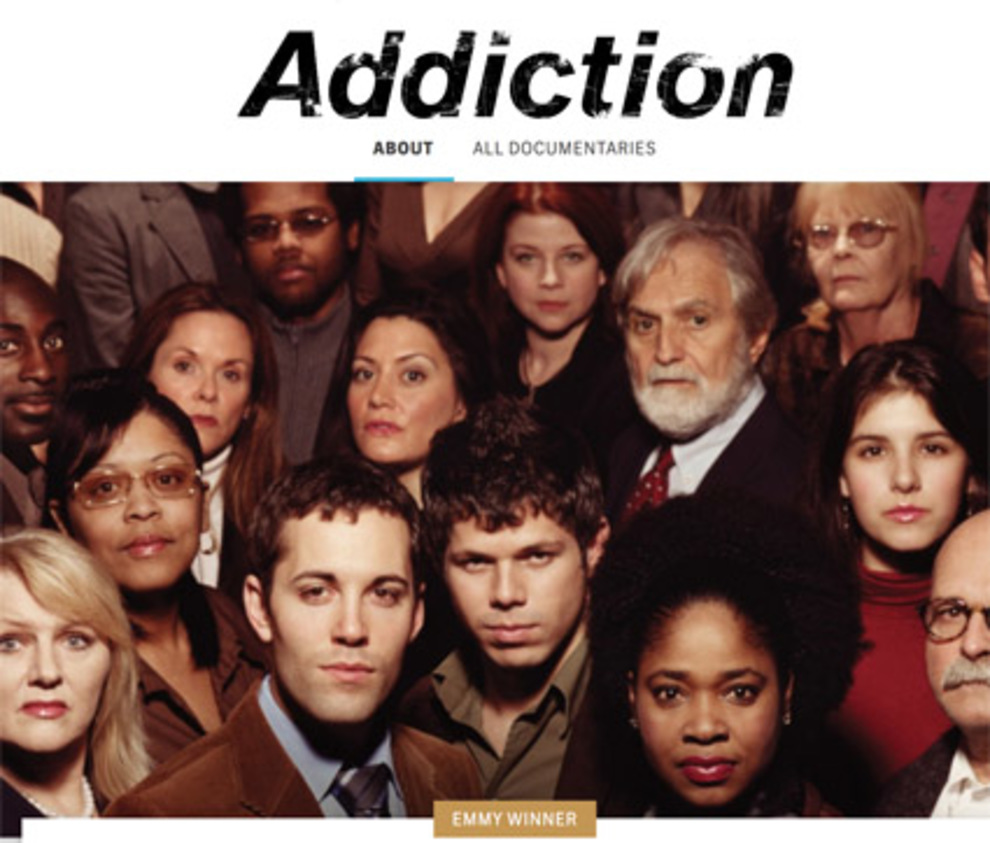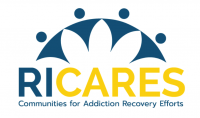Alcoholic Daughter: How Did We Let It Get This Far?
An Allies in Recovery member is struggling to understand how she keeps tolerating the same behaviors from her alcoholic daughter. She is afraid of not being able to implement real changes and stick by them. Will it always be like this?
[This post originally appeared on our Member blog, where experts respond to members’ questions and concerns. To become a member of Allies in Recovery today and get trained on how to reduce the chaos of addiction in your family, click here.]
I keep messing up with my alcoholic daughter. I understand what you and everyone are saying. Really I do. But I’m just not capable of following through with anything. She was kicked out of the last sober house for not providing the required UAs after only 7 days. Since we can’t afford to keep her in other housing, she’s back home. Quite literally it was that or homeless.
Today I found a nearly empty bottle of vodka in her room. We have no idea what to do anymore. We say she can’t stay here if she drinks in the house, but then she does, over and over, and she has no where else to go.
I spoke with the attorney when my alcoholic daughter was kicked out of the sober house and he said we couldn’t file to recommit unless she was a danger to herself or others. He said there weren’t new grounds unless she was driving while drunk or suicidal or physically threatening us.
Dominique Simon-Levine understands this mother’s predicament and guides her to adopding a different approach
Your 23-year-old alcoholic daughter continues to drink despite multiple treatment episodes. She was recently thrown out of her sober house for being unwilling to submit to drug/alcohol testing.
You are fed up, really fed up. She has been home but a short time and has already begun to drink. You are keeping her life together for her. She is back home, you are paying her car insurance, driving her to work. When you look at where you are, you are almost ashamed of it all, preserving the things she needs to live while she continues to drink.
There is a part of your daughter who wants help, or she wouldn’t enter rehabs. She relapses quickly after leaving, despite being in sober homes sometimes, and the cycle starts again. What are the conditions at play that lead your daughter to say yes to rehab when she does agree to go?
Your alcoholic daughter is a guest in your home
What you’ve learned throughout this hellish process is that your daughter stays abstinent in rehab but quickly falls apart after leaving. So, yes, she is going to drink at home. The structure is not in place that would support non-drinking in the way of a rehab. Your daughter is not getting community supports that would substitute for a rehab while she lives with you.
As her parents, you have done so much, tried so hard, had such expectations that treatment would work. But it hasn’t. Civil commitments sound difficult to get in Iowa, though I would push you a little further to see whether that lawyer is right. Are re-commitments really limited to those who can prove new dangers to report? Your daughter ripped out the breathalyzer and is driving. Your daughter is homeless and is staying temporarily with you. She is a guest in your home.
Anyway, exploring civil commitments more will take time. You need something you can do now. And I don’t think it has to come to a formal eviction… Can you pull out of being her landlady? Get her a PO box where she can receive her mail. Your daughter was in a basement apartment for a while. She is not your tenant. Can you work on both these things?
Time for the foot locker and day bed for alcoholic daughter
There is no magic bullet here. You are doing what you can. You cannot cure your alcoholic daughter. She needs a safe place to live that provides her the long-term structure she desperately needs. She needs a respite. Sober housing doesn’t provide sufficient structure. Rehabs do but are time limited and cost a lot.
We have suggested in the past that families in your situation take over her room permanently. Turn it into anything that would support your peace of mind: meditation, art, exercise…..
Put a cot with a foot locker in a common area, perhaps the den or living room. Make life for her in your home be more transparent. Give her less privacy to drink; create more of temporary sense in her living situation in your home. Lessen her footprint in your home and in your daily life.
Explain to your alcoholic daughter the reason for the change. The empty bottle of vodka, the court-mandated breathalyzer she cut out of her car. But don’t frame it as a punishment. It’s a line you are drawing. Parents draw lines. Everyone has to draw their lines at one point or another. It’s a matter-of-fact repercussion of what you’ve had to endure. This isn’t about anger that you found the empty bottle, or rehashing violations of your trust. It’s just about your stating how things are, and what needs to change.
Your conversation could sound like this
We love you. We know that living with us isn’t ideal for you. It’s not ideal for us either. We know that you are having trouble staying sober (vodka bottle). Addiction is a hideous foe. It is tearing apart our family and our home. Here is what we are going to do.
You’re welcome to come home when you are not actively drinking
The cot is always here for you when you are not actively drinking
Since you are actively drinking, we aren’t able to continue supporting the private room, DUI insurance, the car, or the license.
We will continue to drive you to work or to treatment and self-help.
We will continue to find ways to help with the treatment and self-help.
Your alcoholic daughter makes you feel guilty, but this needs to stop
In rereading your past posts I get the sense of the ways in which your daughter is emotionally tricky with you. She throws the need for a car back at you, for example, because it is your wish that she goes to treatment. It’s basically saying: you need to do for her if she is going to do for herself.
That well needs to dry up. Going forward, you are only willing to do the minimum to keep her safe by providing her a cot and help getting to appointments and work. If she needs to drink, she will need someplace else to do it. If she needs a car she will need to buy one (yes – sell her car). And if she needs insurance, she will have to apply for it. BTW: I am concerned by what others on this site have said about having a child on your insurance who could be driving under the influence.
You refuse to be made to feel guilty. Your lines are non-negotiable. You have the right to do this. This is how change begins. This is all you can do.
I know how hard it is to get yourself back up and to try again. You do need to find the energy.
Talk with the attorney more about civil commitments and permanent residence.
Reconfigure your home so that your daughter feels things are more temporary and that makes it harder for her to drink in private.
Don’t give up on treatment.
Here are some treatment ideas to look into. I’ve mentioned dialectical behavioral therapy before. Here is one place that claims to do it.
I’m also a fan of naltrexone to curb drinking. Your alcoholic daughter would need to agree to naltrexone’s monthly shot, Vivitrol. See the Sinclair method highlighted in our Resource Supplement for how this drug can help with alcohol. While you’ve mentioned that she’s tried MAT in the past, working with the Sinclair method is a different approach that is absolutely worth trying given your daughter’s situation. Also with the Vivitol, it reduces her need to manage medications on a daily basis. This could be a condition of her staying at your house going forward. But you’d also need to give it a chance to work. Try thinking about it like this: one monthly shot, and no more talk about her drinking.
This will take time and require patience
If she breaks the new rules: note it, move beyond it. If your daughter drinks, note it, move beyond it. The empty bottle of vodka is a sign you need to tighten things up. So do so, and move beyond it. It’s a dance, a long dance unfortunately, but one you can do. Are you attending our support group, available to members, on Wednesday nights with Kayla Solomon?
Allies is working to provide CRAFT experts for families who need more intensive one-on-one help than our modules and discussion blog can provide. You’re in a very difficult situation. Perhaps pulling in regular coaching for you and your spouse can address the immediate situations that are coming up in the day-to-day.
You’ve written in from a place of great fatigue, wondering how you’ve let her get away with so much. What you are sharing here is raw and painful, yet relatable. You feel bad that you have “permitted” this behavior in your daughter. And you also feel unable to make it stop; that you’re letting this all happen.
You too need support in this struggle
Try to shift the narrative so that you are not the one responsible for her choices. You aren’t making your alcoholic daughter drink, and you can’t make her stop drinking. CRAFT encourages us to focus on what we can do. You can’t bear the burden of being responsible for what she does. You can take responsibility for your own actions, and see ways in which there is room to change in this realm. But feeling bad about yourself that it’s come to this is not the motivation you need. You need positive encouragement, and you have it here on the site. We know you can make these changes I’ve outlined. You can draw lines and stand by them.
You can’t solve her problems. But you can help her as much as you are able in terms of treatment, community supports, finding creative ways to connect her to the help she needs. If you shift your thinking so that you see how holding to your boundaries IS helping her, perhaps it will provide you the momentum you need.
It can be hard to see a way out
When you are in a place of exhaustion, fed-up as you are, and feeling so drastically limited in your options, it’s hard to see a way out. But it’s even harder when you are stuck in a negative story about yourself. Please take it easy on yourself. It’s understandable to be frustrated and wish you could have done something differently, but at the end of the day, acceptance is the key to finding some grace in this – and with yourself.
Can you accept what you have and haven’t done, without labeling your actions or choices as good or bad? Simply letting them be… this takes a lot of compassion for yourself, and it may not feel comfortable at first. But you are also broken as you say. In order to keep going, to see a hopeful way through, you must take time to heal yourself as well. Be gentle with yourself. Give this process time. Give yourself all the appreciation you deserve, and let the judgements go.
When you feel some release and relief from those heavy and negative feelings, look at this with new eyes. Use all the strength and support you have available. We continue to be here for you. Perhaps you could find a book to help inspire new possibilities. Have you read Annie Highwater’s book Unhooked? Try reading something you’ve never picked up before – you never know what treasures are waiting for you in heartfelt accounts like these. You do have the resolve to make some changes… it’s in you as it is in all of the family members here. Thank you for sharing your struggles with us, and for begin so honest. We are sending you enormous hugs and wishing you peace and strength.
Since 2003, Allies in Recovery has addressed substance use in families by providing a method for the family to change the conversation about addiction. We use Community Reinforcement & Family Training (CRAFT), a proven approach that helps the family unblock and advance the relationship towards sobriety and recovery and to engage a loved one into treatment. Become a member by following this link.









